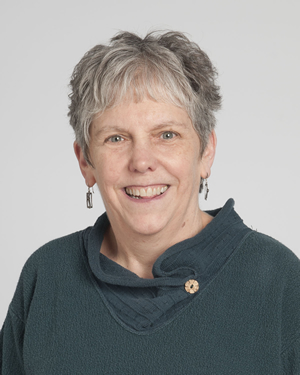Research News

Cleveland Clinic recently announced the 29 projects selected for 2019 grant funding as part of the Annual Fund program, including five led by Lerner Research Institute researchers.
The Annual Fund, an enterprise-wide philanthropy initiative, provides one-time grant funds ranging from $10,000 to $100,000 to support innovative, caregiver-inspired projects that will positively impact Cleveland Clinic patients and surrounding communities. This grant cycle marks the first time that Annual Fund projects were selected through a competitive request for proposal process, which generated nearly 300 letters of interest and more than 150 full applications. Applications were evaluated for their potential to expand patient support services, lay the groundwork for medical breakthroughs and implement community health and wellness programs.
The Lerner Research Institute projects awarded funding include:
- Care Accelerator for Advanced Kidney Disease in Disadvantaged Populations, led by John O'Toole, MD, Department of Inflammation and Immunity: This project will use computational tools to identify individuals with unrecognized advanced kidney disease and will establish a care plan that improves transitions from advanced kidney disease to hemodialysis, reduces barriers and promotes kidney transplantation. Dr. O'Toole's primary appointment is in the Glickman Urological & Kidney Institute Department of Nephrology and Hypertension.
- Clinical 3D Printing for Pediatric Congenital Heart Disease, led by Ryan Klatte, Medical Device Solutions Engineering Core: This project will enable researchers and clinicians to design and print exact heart replicas, affording surgeons better opportunities to examine patient anatomy and design appropriate surgeries.
- Contribution of Maternal Genetics to In Utero Inflammation Mediated Autism Spectrum Disorder, led by Ritika Jaini, PhD, Genomic Medicine (in the lab of Charis Eng, MD, PhD): This study will provide proof of concept for the importance of maternal genetics in determining the severity of in utero inflammation and the incidence and severity of Autism Spectrum Disorder.
- Discovery of Gene Mutations that Govern Sensitivity to Radiation: Advancing Precision Radiotherapy, led by Brian Yard, PhD, Translational Hematology & Oncology Research (in the lab of Mohamed Abazeed, MD, PhD): This project is a large profiling effort to identify gene mutations that affect survival to radiation therapy, as the impact of most genetic anomalies on radiotherapy is currently unknown.
- RISE in Cleveland, led by Donna Driscoll, PhD, Department of Cardiovascular & Metabolic Sciences: This program will train and educate RISE (Research Intensive Summer Experience) students to develop a diverse pipeline of scientific talent for the future and help combat the serious shortage of women and minorities in biomedical research.
These and the other funded projects are great examples of how donors become important partners in discovery and care at Cleveland Clinic. The Annual Fund will fund two grant cycles per year. The next one will be announced in the spring. Contact [email protected] with any questions.
Featured Experts
News Category
Related News
Research areas
Want To Support Ground-Breaking Research at Cleveland Clinic?
Discover how you can help Cleveland Clinic save lives and continue to lead the transformation of healthcare.
Give to Cleveland Clinic

